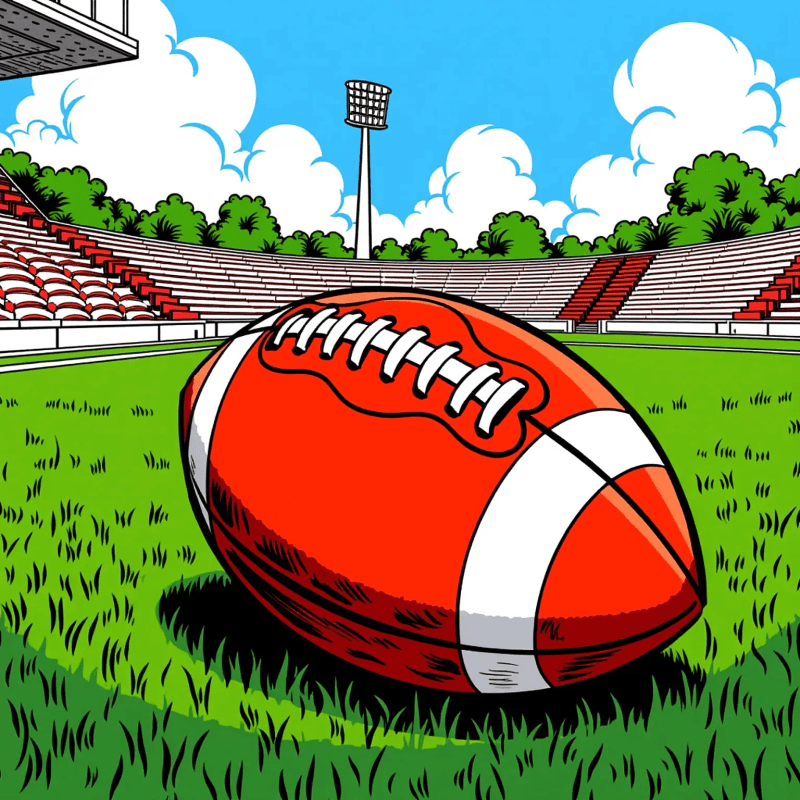When it comes to flag football, having a solid playbook can make all the difference during a game. You want plays that are effective for different situations, whether you're on offense or defense. Here are some key plays that can help you navigate various game scenarios.
Offensive Plays:
Defensive Plays:
By mixing these plays into your flag football strategy, you’ll be well-equipped to handle any situation that comes your way. Teach your players to adapt and communicate, and watch how their confidence grows in every game!
Tips to Enhance Team Communication
Effective communication is the backbone of any team sport, and flag football is no exception. Here are some practical tips to enhance communication among your players:
Strategies for Developing Young Players
Developing young players in flag football is all about creating a fun and supportive environment where they can grow their skills. The key is to keep practices engaging and to mix in a variety of drills that emphasize teamwork and fundamentals. Encourage players to communicate with each other on the field, as this builds confidence and camaraderie.
One effective strategy is to incorporate small-sided games into your practices. By splitting players into smaller teams, they can get more touches on the ball and make quicker decisions during gameplay. This not only helps players develop their skills but allows them to experience the flow of the game in a less pressured setting. Plus, it’s a great way to keep kids active and having fun!
Another important aspect is to focus on teaching the basics of flag football, like how to properly pull flags, throw accurately, and run routes. Establishing a solid foundation will help players as they advance in skill and understanding of the game. Use drills that focus on these fundamentals during practice, and don’t forget to give plenty of positive feedback to reinforce good habits.
Finally, encourage a growth mindset among young players. Emphasize that making mistakes is part of learning. Celebrate improvements and effort, rather than just focusing on winning. This approach helps develop resilient players who will continue to grow in their flag football journey, enjoying the game and looking forward to each season.
Managing Game Day Challenges Effectively
Game day can be both exciting and a bit stressful, especially in flag football. As a coach, you're juggling lots of responsibilities while trying to keep your players focused and pumped up. Let's chat about some common challenges and how to tackle them smoothly.
First up, communication is key. Make sure you have a solid game plan that everyone understands. Use visual aids like chalkboards or whiteboards to illustrate plays and strategies during practice. When game day rolls around, take a moment to go over the plays again. This helps ensure that every player knows their role without feeling overwhelmed.
Next, managing player emotions is crucial. Kids can be super excited or sometimes anxious before a game. Create a fun pre-game routine that includes warm-ups and a few light-hearted team games. This keeps spirits high and helps players shake off any nerves. Building that sense of camaraderie is essential for performance.
Don’t forget about the sidelines! Coaches need to be alert and adaptable as the game unfolds. If you notice something isn’t working, don’t hesitate to adjust your play. Whether it’s switching players' positions or tweaking the offensive strategy, staying flexible can turn the tide in your favor. And remember, keeping your cool sets the tone for the whole team.
Lastly, have a plan for dealing with unexpected issues, like injuries or sudden weather changes. Have extra gear on hand and know the nearest first aid resources. Always prioritize player safety, and keep a backup game plan so you can make quick decisions if things don’t go as expected. With these strategies, you'll be ready to conquer any game day challenge that comes your way in flag football!

